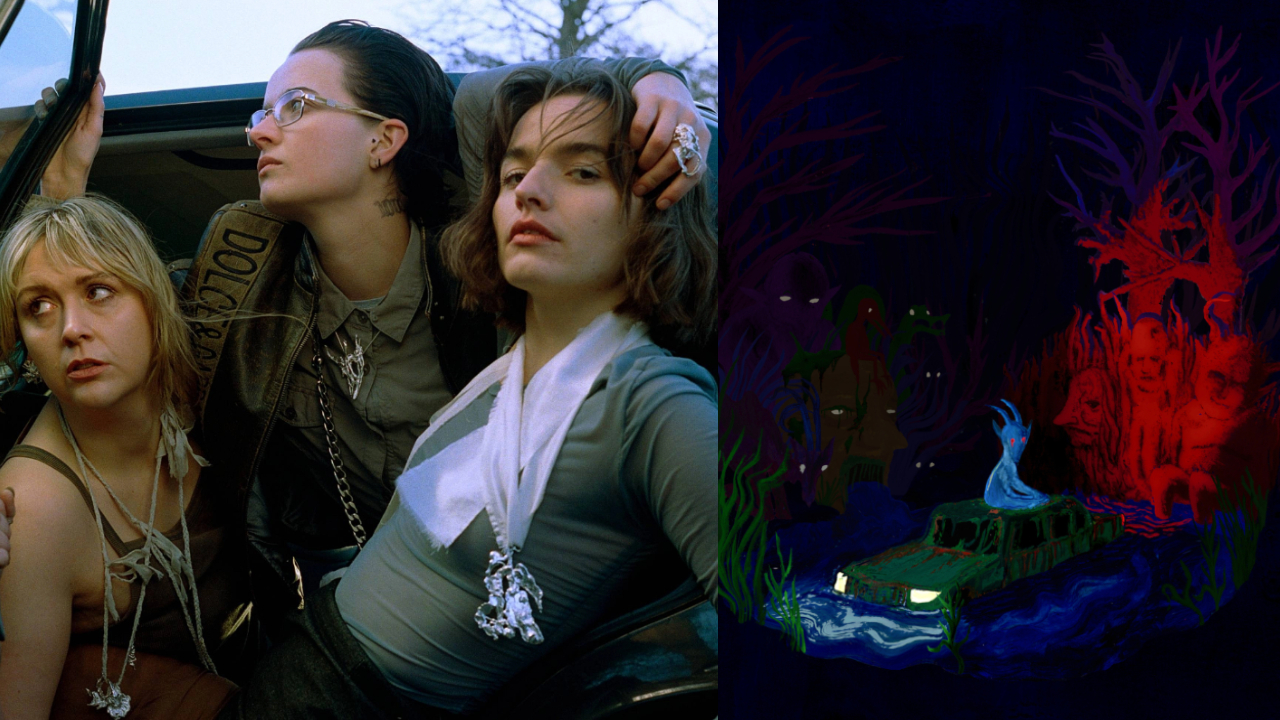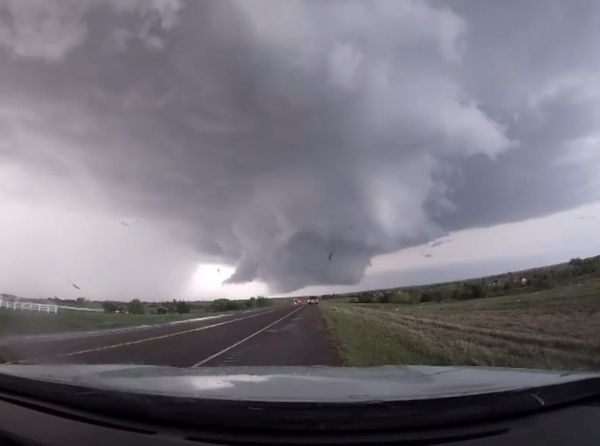
Since the 2018 release of their self-titled first album, a sprawling and unpredictable 19-track debut, Goat Girl have been the darlings of the South London post-punk scene. Their 2020 Dan Carey-produced follow-up, On All Fours, further cemented their status in the modern alternative rock landscape, and Below The Waste should propel the group further into the spotlight, finding the trio - vocalist/guitarist Lottie Pendlebury (she/her), bassist Holly Mullineaux (she/her) and drummer Rosy Jones (they/them) - venturing into alt-folk territory as they grapple with a difficult few years.
Goat Girl’s brutal honesty shapes the album, which, with its balance of chaos and order, is heavily influenced by drummer Rosy Jones’ experience of coming out as queer and their battle with addiction. tcnc (‘take care, not crack’) is peppered with personal observations like “not gonna crack like that, already had a spat with crack”, the lyrics spoken and shouted more than they are sung. Later in the album, the piano-led take it away looks at these dark times from Holly Mullineaux's perspective, with the lyric “Oh if I could, I’d take it away from you” repeated over two and a half minutes with help from a choir of family and friends. It's breathtaking in both its simplicity and impact.
Goat Girl always had a more experimental take on post-punk than their peers, and Below The Waste sees them delve into folk influences to create a natural, organic sound. play it down is witchy and whimsical, chanting vocals paired with droning feedback as they sing “Tie me up and down / Feed me to the ground”. Instrumental interludes reprise, prelude and s.m.o.g are heavily inspired by the natural world, with birdsong, rain and wind chimes making up the intricate details. Elsewhere, though, we leave behind the pastoral for a dystopian look at city life on perhaps and the pop-oriented ‘motorway’.
Throughout the album, there's a mixture of soft, tender whispers and feral, unrestrained catharsis. On one side, we have the low, languorous vocals of tonight, on which you can hear every movement on the guitar strings, every scrape of fingertips along the fretboard, and Pretty faces, an equally gentle, idyllic lullaby that reflects on expansive childhood imagination with folksy strings. On the other end of the spectrum, Goat Girl engage in an emotional release on the aforementioned tcnc, its atmosphere of slightly menacing chaos returning on the lyric-free jump sludge, which speeds up and spirals out in a panicked frenzy.
A fascinating, cohesive listen, brilliantly co–produced by the band and John Spud Murphy (Lankum/black midi), Below The Waste is a major step forward for Goat Girl in terms of their craft. Every detail feels significant, and the balance between abstract artistry and brutal honesty is admirable. The band say that they want to encourage listeners here "to imagine a world where oppressive structures are broken and stripped away": perhaps that why they sound so liberated, happy and authentically themselves here.







